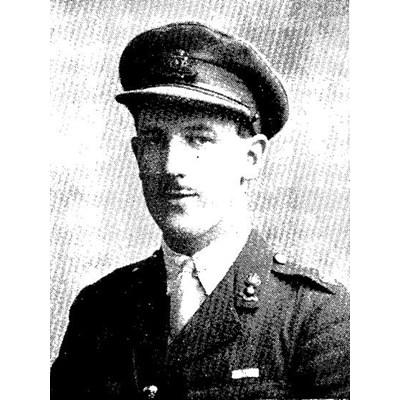Douglas, William Gurwood (1896 - 1919)

Second Lieutenant, 111th Bty. Royal Field Artillery
Buried at Cathcart Cemetery
Commemorated at Hillhead High School
Second Lieutenant William G. Douglas was the elder surviving son of Mr. and Mrs. George Douglas, 56 Bishop's Road, Jordanhill. He was a boy of singularly attractive personality, and was beloved both by comrades and teachers. He was keen on all forms of games, but the Cadet Corps held the first place in his esteem, and to its interests he always remained devoted. On leaving School he entered the iron and steel trade, and he was just beginning to master its intricacies when war broke out. There was no hesitation in his case as to the path of duty and honour. In September, 1914, he, together with six other Hillhead High School boys, enlisted as privates in the Royal Field Artillery. From this branch of service he was later transferred to the 18th H.L.l. with commissioned rank. With them he saw much hard service in France, and was severely wounded.
Towards the end of 1916, he returned to his unit, the Royal Field Artillery, this time with commissioned rank. Returning to France in the spring of 1918, he played a heroic part in the effort to stem the great German onset. For this he received the Military Cross. The Gazette notice states--"While in charge of a forward gun during an enemy attack, the gun was continuously shelled and small dumps of ammunition caught fire. He put out the fires as they occurred and kept the gun going throughout." Hiscommanding officer, Colonel Forsyth, writing to congratulate him said--"I am proud you have been awarded this honour as I know it was well earned."
During the British advance in the autumn he was again wounded and spent some time in hospital. He was convalescing at home, pending his discharge owing to the severe nature of his wounds, when he took pneumonia and died after a week's illness on 28th February, 1919.
Special pathos is attached to the death of those who, like Lieutenant Douglas, came safely through all the perils and hardships of a four years' campaign, only to pass away in times of peace when no danger seemed near. Men who served in business with Lieutenant Douglas, and who latterly renewed the friendship in the tented field, wrote on hearing of his death--"A finer friend and a truer pal no man ever had." Another fellow-officer said--"Willie was a true man. The City of Glasgow, the world indeed, is poorer by the death of such an officer. He was all a true friend could be, and I can testify that in battle he was the embodiment of bravery."
The School will ever cherish the memory of this gallant soldier and loyal son.




